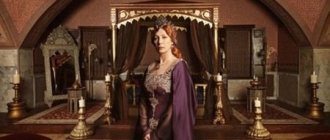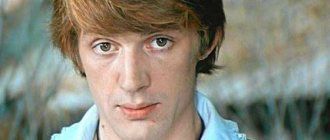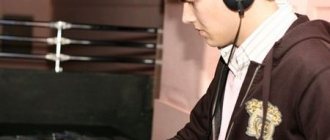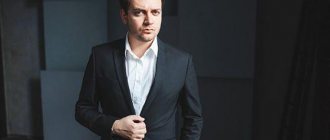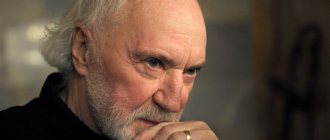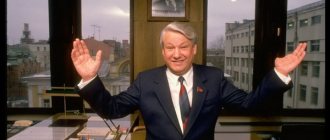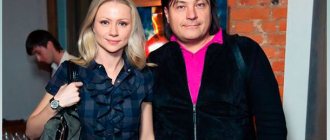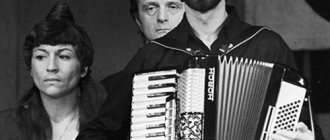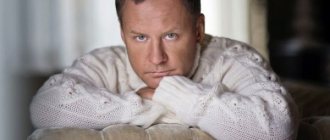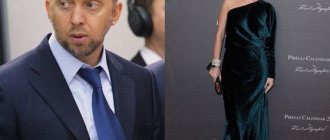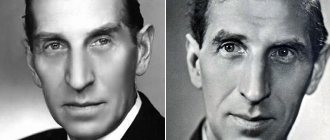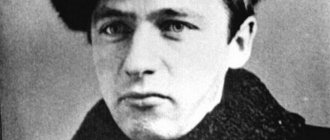Biography of Boris Yeltsin
Boris Yeltsin is a man whose name will always be inextricably linked with the modern history of Russia. Some will remember him as the first president, others will invariably see him primarily as a talented reformer and democrat, while others will remember voucher privatization, the military campaign in Chechnya, the default and call him a “traitor.”
First President of Russia Boris Nikolaevich Yeltsin
Like any outstanding politician, Boris Nikolaevich will always have supporters and opponents, but today, within the framework of this biography, we will try to refrain from assessments and judgments and will appeal exclusively to reliable facts. What kind of person was the first president of the Russian Federation? What was his life like before starting his political career? Our article today will help you find out the answers to these and many other questions.
Early 90s
In 1990, Boris Nikolaevich became chairman of the Supreme Council. In this post, he again begins to oppose the party leadership and increases his own power after the introduction of the sovereignty of the RSFSR. This was followed by the distribution of sovereignty to the autonomous republics and some regions of the country.
In 1991, Yeltsin was elected president of the RSFSR. After the GKChP putsch in August, Gorbachev practically lost power; it was transferred to the presidents of the Union Republics. Yeltsin abolished the Communist Party. This was followed by the collapse of the Soviet Union, the creation of the CIS, and the resignation of Gorbachev. This is how Boris Nikolaevich found himself at the pinnacle of power in the country.
B. Yeltsin takes over as President of the RSFSR, 1991
To pay off debts, the new government led by the president had to carry out a number of reforms (“shock therapy”), including: privatization, price liberalization, and free trade. These measures caused a severe economic crisis, a drop in the standard of living of the population, hyperinflation, and non-payment of wages and benefits. There have also been attempts in the regions to secede from the country.
At the end of 1992, a political crisis followed and an unsuccessful attempt was made to impeach the president. In 1993, the Supreme Council and the Congress of People's Deputies were dissolved. After this, the Constitutional Court and the Supreme Council decide to remove Yeltsin from office. But he was not going to retreat, an armed confrontation began, as a result of which hundreds of people were killed and injured. After this, constitutional reform followed, and the Federal Assembly began to work.
Childhood and family
The official biography of Boris Yeltsin says that he was born in a maternity hospital in the village of Butka (Sverdlovsk region, Talitsky district). Boris Nikolaevich’s family itself lived nearby - in the village of Basmanovo. That is why in different sources one can find both one and the other toponym as the birthplace of the future president.
Little Boris Yeltsin with his parents
As for Boris Yeltsin’s parents, they were both simple rural residents. Father, Nikolai Ignatievich, worked in construction, but in the 30s he was repressed as a kulak element and served his sentence on the Volga-Don. After the amnesty, he returned to his native village, where he started everything from scratch as a simple builder, then rose to become the head of a construction plant. Mom, Klavdia Vasilievna (nee Starygina), worked as a dressmaker most of her life.
Boris Yeltsin's parents were simple Soviet workers
When Boris was not yet ten years old, the family moved to the city of Berezniki, not far from Perm. At the new school, he became the head of the class, but it was difficult to call him a particularly exemplary student. As Yeltsin’s teachers noted, he was always a fighter and restless. Perhaps it was these qualities that led Boris Nikolaevich to the first serious problem in his life. During boyhood games, the guy picked up an unexploded German grenade in the grass and tried to disassemble it. The consequence of the game was the loss of two fingers on his left hand.
Young Boris Yeltsin was a strong good student
This fact is also related to the fact that Yeltsin did not serve in the army. After school, he immediately entered the Ural Polytechnic Institute, where he mastered the specialty of civil engineer.
Boris Yeltsin (right) in a student dormitory
The absence of several fingers did not prevent Boris Nikolaevich from receiving the title of Master of Sports in volleyball as a student.
...and coach the women's volleyball team
Biography
Boris Nikolaevich Yeltsin is a statesman who went down in history as the first president of Russia, as well as a radical reformer of the country.
Boris Nikolaevich was born on February 1, 1931, and his zodiac sign is Aquarius. He comes from a simple working-class family and is Russian by nationality. His father Nikolai Ignatievich was engaged in construction, and his mother Klavdiya Vasilievna was a dressmaker. Since soon after the birth of Boris his father was repressed, the boy lived with his mother and brother Mikhail in the city of Berezniki, Perm region.
Boris Yeltsin as a child with his parents and brother
At school, the future President Yeltsin studied well, was a headman and a class activist. In the seventh grade, the teenager was not afraid to go against the class teacher, who raised her hand to the students and forced them to work off bad grades in her garden. Because of this, Boris was expelled from school with a very poor record, but the guy turned to the city committee of the Komsomol and achieved justice. After receiving his matriculation certificate, Boris Yeltsin becomes a student at the Ural Polytechnic Institute, where he graduated from the Faculty of Construction.
Due to a childhood injury, Boris Nikolaevich was missing two fingers on his hand, so he was not drafted into the army. But this drawback did not prevent Boris from playing volleyball in his youth, passing the standards for the title “Master of Sports” and playing for the Yekaterinburg national team. After graduation, Yeltsin joined the Uraltyazhtrubstroy trust. Although his education allowed him to immediately take a leadership position, he preferred to first master working professions and alternately worked as a carpenter, painter, concrete worker, carpenter, bricklayer, glazier, plasterer and crane operator.
Boris Yeltsin in his youth
In two years, the young specialist rose to the rank of foreman of the construction department, and by the mid-60s he had already headed the Sverdlovsk house-building plant. In those same years, Boris Nikolayevich Yeltsin began moving up the party ladder. First, he becomes a delegate to the city conference of the Communist Party, then the first secretary of the Sverdlovsk regional committee of the CPSU, and by the beginning of the 80s - a member of the Central Committee of the party.
Political career
After graduating from university in 1955, Boris Yeltsin went to work at the Sverdlovsk Construction Trust. Here he joined the CPSU, which allowed him to quickly advance in his career.
Boris Yeltsin in his youth
As chief engineer and then director of the Sverdlovsk house-building plant. Yeltsin attended district party congresses. In 1963, during one of the meetings, Yeltsin was enrolled as a member of the Kirov district committee of the CPSU, and later - in the Sverdlovsk regional committee of the CPSU. In his party position, Boris Nikolayevich was primarily involved in overseeing housing construction issues, but very soon Yeltsin’s political career began to rapidly gain momentum.
Yeltsin's political career began in 1963
In 1975, our today's hero was elected secretary of the Sverdlovsk regional committee of the CPSU, and a year later - first secretary, that is, in fact, the main person of the Sverdlovsk region. His predecessor and patron described the young Yeltsin as a power-hungry and ambitious man, but added that he “would hurt himself, but he would complete any task.” Yeltsin held this post for nine years.
In 1976, Yeltsin became the first secretary of the Sverdlovsk region
During his leadership in the Sverdlovsk region, many issues related to food supply were successfully resolved. Coupons for milk and some other goods were abolished, and new poultry farms and farms were opened. It was Yeltsin who launched the construction of the Sverdlovsk metro, as well as several cultural and sports complexes. His work in the party brought him the rank of colonel. Yeltsin's speech at the XXVII Congress of the CPSU (1986) After successful work in the Sverdlovsk region, Yeltsin was recommended to the Moscow City Committee of the CPSU for the position of first secretary. Having received the position, he began a personnel purge and initiated large-scale inspections, to the point that he himself traveled by public transport and inspected food warehouses.
At a meeting of the Supreme Council of the USSR (1986)
On October 21, 1987, he sharply criticized the communist system at the Plenum of the CPSU Central Committee: he criticized the slow pace of perestroika, announced the formation of a personality cult of Mikhail Gorbachev, and asked not to include him in the Politburo. Under a barrage of counter-criticism, he apologized, and on November 3, he filed a statement addressed to Gorbachev, asking him to remain in office.
A week later he was hospitalized with a heart attack, but party colleagues believed he had attempted suicide. Two days later, he was already present at the meeting of the Plenum, where he was removed from the post of first secretary of the MGK.
Yeltsin asks for political rehabilitation. In 1988, he was appointed deputy head of the Committee for Construction Affairs.
On March 26, 1989, Yeltsin became a people's deputy for Moscow, receiving 91% of the votes. At the same time, his competitor was government protege Yevgeny Brakov, head of ZIL. In May 1990, the politician headed the Supreme Council of the RSFSR. Yeltsin’s “political weight” was increased by the resonant signing of the Declaration of State Sovereignty of the RSFSR, which legally established the priority of Russian laws over Soviet ones. On the day of its adoption, June 12, today we celebrate Russia Day.
At the XXVIII Congress of the CPSU in 1990, Yeltsin announced his resignation from the party. This congress was the last.
Yeltsin leaves the CPSU (1990) On June 12, 1991, the non-party Yeltsin with 57% of the vote and with the support of the Democratic Russia party was elected president of the RSFSR. His competitors were Nikolai Ryzhkov (CPSU) and Vladimir Zhirinovsky (LDPSS).
Boris Yeltsin on a tank near the White House (August 1991 putsch)
On December 8, 1991, after the isolation of USSR President Mikhail Gorbachev and his actual removal from power, Boris Yeltsin, as the leader of the RSFSR, signed an agreement on the collapse of the USSR in Belovezhskaya Pushcha, which was also signed by the leaders of Belarus and Ukraine. From that moment on, Boris Yeltsin became the leader of independent Russia.
Rebuilding the country after the collapse of the USSR
After his appointment as a candidate member of the Politburo of the CPSU Central Committee in 1986, it was Yeltsin Boris Nikolaevich who began an active fight against the sluggish policy of perestroika, thanks to which he earned himself his first enemies among the members of the Central Committee, under whose pressure Yeltsin’s opinion changed sharply, and he was appointed to the position of First Secretary of the City Committee of the capital. Since 1988, his dissatisfaction with the lack of will of Politburo members has only intensified. Most of all goes to the same Ligachev, who recommended Yeltsin for this position.
In 1989, he successfully managed to combine the position of deputy of the Moscow district and membership in the Supreme Soviet of the USSR until 1990, when he first became a people's deputy of the RSFSR, and then Chairman of the Supreme Council of the RSFSR, whose position, after parliament approved the declaration of sovereignty of the RSFSR, became in the country more significant. It was during this period that conflictual relations with Mikhail Gorbachev reached their peak, as a result of which he left the CPSU.
Most of the people reacted negatively to the collapse of such a great state as the Soviet Union, completely losing confidence in Gorbachev, which Yeltsin took advantage of. The year 1991 was marked by the fact that the people chose their president for the first time, who became Boris Yeltsin. For the first time, people were able to choose their own leader, because before this the party dealt with these issues, and people were simply informed about the change of leader.
Presidency
The collapse of the USSR provoked many problems, which it was Boris Yeltsin who had to fight. The first years of Russian independence were marked by multiple problematic phenomena in the economy, a sharp impoverishment of the population, as well as the beginning of several bloody military conflicts in the Russian Federation and abroad. Thus, for a long time Tatarstan declared its desire to secede from the Russian Federation, then the government of the Chechen Republic announced a similar desire. Interview with President Boris Yeltsin (1991) In the first case, all pressing issues were resolved peacefully, but in the second case, the reluctance of the former union autonomous republic to remain part of the Russian Federation marked the beginning of military action in the Caucasus.
The Chechen campaign is the main argument of Yeltsin's critics
Due to multiple problems, Yeltsin's rating rapidly fell (to 3%), but in 1996 he still managed to remain in the presidency for a second term. His competition then included Grigory Yavlinsky, Vladimir Zhirinovsky and Gennady Zyuganov. In the second round, Yeltsin “met” with Zyuganov and won with 53% of the votes.
In 1996, Yeltsin again became president
Many crisis phenomena in the political and economic system of the country persisted in the future. Yeltsin was sick a lot and rarely appeared in public. He gave key positions in the government to Anatoly Chubais, Vladimir Potanin and Boris Berezovsky who supported his election campaign. Due to the combination of all factors, on December 31, 1999, Boris Nikolaevich was forced to resign. His successor was Vladimir Putin. Yeltsin: “I’m leaving and I want to ask you for forgiveness”
YELTSINBorisNikolaevich
Day and place of birth: February 1, 1931 in the village of Butka, Ural region.
Father - Nikolai, a builder, Mother - Claudia, a dressmaker. Boris Nikolaevich spent his childhood in the city of Bereznyaki, Perm region. I also finished school. There were not enough fingers on his left hand, which is why he did not serve in the army. While studying at the institute, he played volleyball and participated in competitions in the city team. Master of Sport. He began his career in the Uraltyazhtrubstroy trust, where he was assigned in 1955. During the year I mastered several construction specialties. Later he held the positions of foreman and site manager in the construction of various projects. In 1957, he was appointed to the position of foreman in the construction department of the trust. Boris Nikolaevich became a member of the CPSU in 1961. After 2 years he works at the Sverdlovsk house-building plant as a chief engineer. In 1966 he was appointed director of the Sverdlovsk DSK. In 1968, he was appointed head of the construction department in the Sverdlovsk Regional Committee of the CPSU. In 1975, he took the post of secretary of the Sverdlovsk Regional Committee of the CPSU and was responsible for the industrial development of the region. In 1976, he was appointed 1st Secretary of the Sverdlovsk Regional Committee of the CPSU. He worked in this position until 1985. From 1978 to 1989 he was a deputy of the Supreme Council of the USSR. In 1981 he became a member of the CPSU Central Committee and was a member of the committee until 1990 (until he left the party). Member of the Presidium of the Supreme Soviet of the USSR twice: 1984-1985, 1986-1988. In 1985, Boris Nikolaevich was transferred to Moscow to work. In April, he became the head of the construction department of the CPSU Central Committee, and 2 months later he was appointed to the post of secretary of the CPSU Central Committee for construction issues. At the end of 1985, B. Yeltsin was recommended for the post of 1st Secretary of the Moscow City Committee of the CPSU. At the beginning of 1986, he was a candidate member of the Political Bureau of the CPSU Central Committee. He held this position until February 1988. In the fall of 1987, he was relieved of his post as 1st Secretary of the Moscow City Committee. In January of the following year he became 1st Deputy Chairman of the USSR State Construction Committee - Minister of the USSR. In March 1989 he became a people's deputy of the USSR. In June 1989 he joined the Supreme Soviet of the USSR. He was a member until December 1990. He was appointed to the post of chairman of the USSR Armed Forces Committee on Architecture and Construction, and became a member of the Presidium of the USSR Armed Forces. In May 1990 he became a people's deputy from Sverdlovsk. During the same period, he was elected Chairman of the Supreme Council of the RSFSR. In July 1990, at the CPSU congress, Boris Nikolaevich criticized the party and its leader and announced his resignation from the party. In June 1991, he was elected President of the RSFSR. In July, Boris Nikolayevich took office as President, taking the oath of allegiance to the Russian Constitution and the people of Russia. In August 1991, he became the leader of the fight against the conspirators. He equated the actions of the State Emergency Committee with a coup d'etat, and later promulgated decrees on the non-recognition of the actions of the State Emergency Committee. At the end of 1991, he took part in the signing of the Belovezhskaya Agreement on the creation of the CIS. In February 1996, he announced his intention to run for a 2nd term as President of the Russian Federation. In June, Boris Nikolaevich reached the 2nd round, and in July he won the elections. At the end of December 1999, he announced his resignation from the post of President of the Russian Federation. For his efforts he was awarded the Order of Merit for the Fatherland, 1st degree, Order of Lenin, Red Banner of Labor (2 pieces), Badge of Honor, medals “in memory of the 1000th anniversary of the city of Kazan”, “For valiant labor” ", "30 years of victory in the Second World War", gold medal from VDNKh. He had a number of foreign, departmental, and church awards. He was the author of 3 books. He was married and had 2 daughters. B. Yeltsin died on April 23, 2007 as a result of cardiac arrest. The coffin with the body of Boris Nikolayevich stood in the Cathedral of Christ the Savior, everyone could say goodbye to the former president. He was buried at the Novodevichy cemetery. In 1955 he graduated from the Ural Polytechnic Institute named after S.M. Kirov.
Personal life of Boris Yeltsin
Boris Yeltsin met his wife Naina Iosifovna Girina at the university.
Boris Yeltsin with his wife Naina, 1954
“She was always modest and friendly. This suited my irrepressible character very well. Our mutual sympathy grew gradually, but we didn’t show it. Our platonic relationship lasted a long time, although I internally understood that I had fallen in love, fallen in love deeply and there was no escape,” Boris Yeltsin wrote in his memoirs. Until she was 25, she lived under her middle name – Anastasia.
Boris and Naina Yeltsin (1997)
In marriage, Boris and Naina had two daughters: the eldest Elena (born in 1957, married to Okulova) and Tatyana (born in 1960, married to Dyachenko, Yumasheva).
Boris Yeltsin with his daughters
Elena is a non-public person, while Tatyana runs the Yeltsin Foundation. Boris Yeltsin. Life and destiny
Sensational information about Yeltsin has been revealed - he is not who he said he was
Scientists have found Jewish roots in Yeltsin, Dialog.UA reports.
According to the official version, Boris Nikolaevich was born in the Sverdlovsk region into a family of dispossessed peasants.
All his ancestors have roots from here - grandfather Ignat Yeltsin, parents - Nikolai Ignatievich and Klavdia Vasilievna. They are all Russian and even several generations old. The version of Jewish origin was developed precisely from the grandfather, who was recorded under the surname “Yeltsin” - the absence of a soft sign prompted historians to look for a Jewish origin in this whole story. It was also possible to establish that in the 18th century. Under the same surname there was another paternal ancestor - Sergei Yeltsin. All this has prompted historians to study Yeltsin's genealogy over several generations.
Jewish roots - myth or truth?
In the early 90s, a theory appeared that Boris Nikolaevich’s uncle was a Jew, Eltsin Boris Moiseevich. Many tried to prove their relationship. To this end, several representatives of the all-Russian movement went to the Yeltsins’ homeland to interview local residents live and retrieve archives.
The FSB hindered the search in every possible way, so the group returned back with nothing. Although there is a very low probability that they could confirm their version. In her historical works, M.E. Bychkova completely refuted the Jewish theory, arguing that there were no Jews in the family of Boris Nikolaevich and there could not have been. The famous historian D. Panov claims that already in 1921 a soft sign appeared in Yeltsin’s surname, as evidenced by the official questionnaires of immigrants who went to the Urals in search of work. Among them were the ancestors of B.N. Yeltsin. According to the census data, there were no Jews among them. The Yeltsin family firmly established itself in the Urals, where the future president was born, graduated from college and began building his career.
Trying to prove Yeltsin’s Jewish origins, biographers subsequently switched to his legal wife. And there was something to catch on here. Anastasia Girina was a classmate of Boris Nikolaevich. At school and at home they called her Naya - it was this fact that seemed suspicious and became the reason to rummage through her biography. Although at that time there were no official statements about Naina Iosifovna’s Jewish genes. A serious argument was the confession of Yeltsin’s mother; she told reporters that Naina Yeltsin was indeed Jewish. But this is the story of the next generation and it has nothing to do with the origins of Boris Nikolaevich.
It is known that many facts about the biography of political figures of that time were hidden. But regarding Yeltsin, this was only information about the repressions to which his ancestors were subjected. No more. Therefore, on the basis of officially proven facts, it can be argued that Boris Nikolaevich belongs to the Russian nation. Although the study of the genealogical tree of the Yeltsin family continues. Who knows, maybe over time facts about other roots will emerge.
Let us remember that Dialog.UA previously reported that in 1996 Yeltsin warned about the annexation of Crimea and the war that the Russian Federation would unleash.
Death
Boris Yeltsin passed away 7.5 years after his resignation - on April 23, 2007 due to problems with the cardiovascular system, which by that time had become chronic.
Widow and children at Boris Yeltsin's funeral
Boris Yeltsin is buried at the Novodevichy cemetery in Moscow.
Boris Yeltsin's grave
In 2020, the Yeltsin Center opened in Yekaterinburg - a museum dedicated to the personality of the first president of Russia, his life path and the first pages in the history of modern Russia.
Inside the Yeltsin Center
Boris Nikolaevich Yeltsin. Curriculum Vitae
On May 29, 1990, at the First Congress of People's Deputies of the RSFSR, Boris Yeltsin was elected Chairman of the Supreme Council of the RSFSR with the active support of the Democratic Russia bloc. He held this post until June 1991. On July 12, 1990, at the XXVIII Congress of the CPSU, he left the ranks of the party.
On June 12, 1991, during a nationwide direct open election, he was elected the first president of Russia. In this post, Boris Yeltsin also served as chairman of the Constitutional Commission of the Russian Federation, chairman of the Extraordinary Commission for Food and chairman of the Supreme Consultative Coordination Council. From November 1991 to May 1993, he headed the Russian government.
On July 3, 1996, during a nationwide direct open election in two rounds, he was elected President of Russia for a second term.
Since May 7, 1992 - Supreme Commander-in-Chief of the Armed Forces of the Russian Federation. He headed the Security Council and the Defense Council of the Russian Federation. Military rank - colonel.
From December 1993 to 2000 he was Chairman of the Commonwealth of Independent States.
On December 31, 1999, Boris Yeltsin announced his resignation from the post of President of the Russian Federation and by his decree appointed Vladimir Putin as acting President of the Russian Federation.
On April 5, 2000, the first President of Russia, Boris Yeltsin, was awarded pensioner and labor veteran certificates.
In November 2000, Yeltsin created the charitable Foundation of the First President of Russia B.N. Yeltsin" to support young talents in the fields of education, science, art and sports.
Boris Yeltsin is the author of the books “Confession on a Given Topic” (1990), “Notes of the President” (1994), “Presidential Marathon” (2000).
He was awarded the Order of Lenin, two Orders of the Red Banner of Labor, the Order of the Badge of Honor, the Order of Merit for the Fatherland, 1st degree; foreign awards: “Royal Order of Peace and Justice” (UNESCO), the “Shield of Freedom” medal “For dedication and courage” (USA), the highest state award of Italy - the Order of the Knight Grand Cross, the Order of Three Stars of the 1st degree (Latvia), the Order of Dmitry Donskoy (ROC) and many others.
Boris Yeltsin died on April 23, 2007 in Moscow at the Central Clinical Hospital as a result of the progression of cardiovascular multiple organ failure (on November 5, 1996, Yeltsin underwent heart surgery at the Russian Cardiology Center, where he underwent multiple coronary artery bypass grafting). Yeltsin's funeral service took place in the Cathedral of Christ the Savior. He was buried at the Novodevichy cemetery in Moscow.
A street in the village of Butka, a street in Yekaterinburg, one of the peaks in the Ala-Too Mountains (Kyrgyzstan), crowning the Kok-Zhaiyk (Green Polyana) mountain gorge, are named in honor of the first President of Russia Boris Yeltsin. His name was given to the Ural State Technical University (USTU-UPI) in 2008, and to the Kyrgyz-Russian (Slavic) University (Kyrgyzstan) in 2004.
Since 2006, the Ural Center of B. N. Yeltsin, established by the “Foundation of the First President of the Russian Federation B. N. Yeltsin,” has been operating in Yekaterinburg. The structure of the Center includes four exhibition halls, as well as a conference room and a large library.
In 2009, the Presidential Library named after. B.N. Yeltsin.
